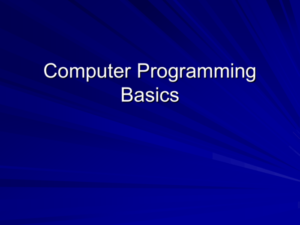Welcome to the wild world of Quantum computing news where qubits frolic like playful puppies and entanglement isn’t just for romantic relationships! Buckle up as we journey through the latest breakthroughs in quantum technology that are not just making headlines but may also redefine our understanding of computing itself.
Recent developments bring exciting advances from mind-bending research papers to quirky partnerships that sound like they’re straight out of a sci-fi movie. Whether it’s the breakthrough in pharmaceutical applications or finance wizardry, quantum computing is strutting its stuff across various industries with flair and finesse.
Recent Developments in Quantum Computing

The realm of quantum computing has been a veritable playground of innovation recently, with breakthroughs popping up like popcorn at a summer fair. Researchers and tech giants alike have been racing to harness the power of qubits, entanglement, and all those other words that sound like they’re straight out of a sci-fi movie. In the past year, we’ve seen some truly jaw-dropping advancements that are not only pushing the envelope but also flipping it inside out and showing off its colorful lining.Among the most noteworthy breakthroughs is the leap made by several teams in the field of quantum error correction, which has been likened to finally teaching a toddler to use a napkin—messy but essential for progress.
Key research papers released in the last year have illuminated the path forward, highlighting methodologies that promise to enhance the fidelity and performance of quantum systems.
Notable Breakthroughs in Quantum Technology
This year has seen some remarkable strides in quantum technology, and the implications are enough to make even the most seasoned physicist do a double-take. Here are a few of the standout achievements:
-
The development of the world’s first error-corrected quantum processor was unveiled by IBM, marking a milestone that many believed was still on the far side of the horizon. This milestone allows for the preservation of quantum information over longer periods, paving the way for more complex quantum algorithms and applications.
-
Google’s research team published a paper detailing a new quantum algorithm that drastically reduces the time needed to solve specific problems, essentially turbocharging quantum computation. Imagine replacing a bicycle with a jetpack—it’s that kind of leap!
-
Scientists at MIT and Stanford have collaborated on a breakthrough in quantum communication protocols, making it feasible to transmit quantum information over long distances without significant loss. The implications for secure communication are monumental, possibly outpacing even the most vigilant spies!
Significant Research Papers
The academic world has been buzzing with groundbreaking research papers that have set the foundation for future advancements in quantum computing. Important publications include:
-
A definitive paper by researchers at the University of California, Berkeley explored new methods for creating entangled states, akin to finding the “secret sauce” for quantum mechanics. This innovation promises to bolster the capabilities of quantum networks significantly.
-
Another significant study from the University of Sydney introduced a novel technique for stabilizing qubits, akin to teaching a cat to stay—an impressive feat that could lead to more robust quantum devices.
Key Partnerships in Quantum Computing
Recent partnerships between tech companies and research institutions have been fostering an environment ripe for quantum innovation. These collaborations are essentially the star-studded casts of the quantum computing world. Highlights include:
-
Microsoft’s ongoing partnership with the University of Sydney focuses on developing scalable quantum systems. They’re like the dynamic duo of Batman and Robin, but with a lot more qubits and a lot less spandex.
-
Intel and the Massachusetts Institute of Technology have joined forces to explore new materials for qubit fabrication, setting the stage for the next generation of quantum processors. Think of them as architects building a digital city where every building is a superposition of possibilities.
-
Rigetti Computing teaming up with NASA to advance quantum algorithms specifically for aerospace applications is like having a space shuttle run on quantum power—talk about shooting for the stars!
The quantum computing landscape is evolving faster than you can say “Schrodinger’s cat,” and with these developments, the future looks brighter than a supernova. Buckle up, because we’re just getting started!
Quantum Computing Applications in Various Industries
In the ever-evolving realm of technology, quantum computing stands as a beacon of potential, illuminating paths that were once thought impossible. Industries across the board are now harnessing the extraordinary capabilities of quantum computing, unleashing its power to tackle complex challenges and enhance efficiency. From pharmaceuticals discovering new drugs faster than a caffeine-fueled scientist, to finance companies predicting market trends with the finesse of a psychic octopus, the possibilities are endless.
Let’s dive into how quantum computing is revolutionizing different sectors, making them smarter, faster, and, dare we say, a bit cooler.
Pharmaceuticals
In the pharmaceutical industry, quantum computing is not just a magic trick; it’s a game changer. The ability to simulate molecular interactions at unprecedented speeds means that drug discovery can be streamlined significantly. Traditional methods often involve trial and error, which can take years and cost millions. Quantum computing accelerates this process to mere months or even weeks, reducing costs and increasing the chances of finding effective treatments.
Consider the example of a pharmaceutical company using quantum algorithms to model complex biomolecular structures. By simulating how a drug interacts with different proteins, researchers can identify promising compounds much faster. This not only speeds up the initial phases of drug development but also allows for more innovative approaches to tackling diseases such as cancer or Alzheimer’s.
“With quantum computing, we can explore the molecular universe like never before, making the impossible possible.”
Finance
In the bustling world of finance, speed and precision are paramount. Quantum computing offers financial institutions the ability to analyze vast datasets and optimize complex portfolios in the blink of an eye. By employing quantum algorithms for risk analysis and fraud detection, firms can mitigate potential losses while also enhancing security measures against cyber threats. An intriguing application is the use of quantum computing for algorithmic trading.
By processing market data at lightning speed, firms can capitalize on fleeting opportunities that traditional computers would miss. Additionally, quantum computing models can forecast market trends with an impressive degree of accuracy, allowing investors to make informed decisions.
“In finance, time is money. Quantum computing lets us save both.”
Logistics
The logistics industry is often likened to a complex dance of moving parts, and quantum computing is the choreographer. By optimizing routes and supply chain management, quantum algorithms enhance efficiency in ways that classical computing simply cannot. For instance, a logistics company can utilize quantum computing to solve the famous Traveling Salesman Problem, where finding the most efficient delivery route among numerous locations can drastically cut fuel costs and delivery times.
Imagine a delivery truck zipping along a route crafted by a quantum computer, minimizing traffic and maximizing efficiency. Moreover, inventory management benefits from quantum algorithms that can predict demand fluctuations with remarkable precision, ensuring that stock levels are always optimized.
“With quantum computing, your delivery service could be the fastest thing since sliced bread – or at least deliver it efficiently!”
Future Trends in Quantum Computing

The future of quantum computing is like a rollercoaster ride, thrilling and unpredictable! As we strap in for the next decade, predictions abound about how these quantum wonders will evolve, impacting everything from data security to drug discovery. Buckle up, because the quantum leap is about to get a lot more exciting!
As we gaze into the crystal ball of quantum computing, experts are buzzing with predictions that could reshape our technological landscape. By 2030, we could see quantum computers solving complex problems in minutes that would take classical computers eons. This includes breakthroughs in artificial intelligence, materials science, and even climate modeling. It’s as if we’re inviting Schrödinger’s cat to join us for dinner, where the menu includes exponential processing power and a side of groundbreaking discoveries!
Predicted Evolution of Quantum Computing
The next decade is set to witness transformative changes in quantum computing, with a few key trends leading the charge. Here are some anticipated developments that might just make your head spin faster than a qubit in superposition:
- The emergence of fault-tolerant quantum computers: These bad boys are expected to put an end to those pesky error rates that plague current systems, making practical applications more feasible.
- Growth of quantum cloud computing: Instead of needing a supercomputer in your office, quantum capabilities will be accessible from the cloud, democratizing access for researchers and businesses alike.
- Real-world applications in pharmaceuticals: Imagine quickly simulating molecular interactions to discover new drugs—quantum computing could turn that dream into reality!
- Enhanced cybersecurity measures: Quantum encryption methods, such as quantum key distribution, could make our data more secure than Fort Knox on a Sunday morning.
- Integration with AI: Expect quantum algorithms that revolutionize machine learning, leading to smarter systems that learn faster than your grandma on TikTok.
Impact on Global Technology Landscapes
The ripple effects of quantum computing will be felt across various industries, creating a technological renaissance that could redefine our everyday lives. Its impact will be profound, as entire sectors pivot to leverage its capabilities:
- Healthcare: Faster simulations for drug development will shorten the timeline from lab to market, potentially saving millions of lives.
- Finance: Quantum algorithms will enable quicker risk assessments, fraud detection, and optimization of investment strategies, almost like having a financial crystal ball!
- Logistics: Quantum computing could optimize routing and supply chain management, reducing costs and delivery times while minimizing carbon footprints.
- Telecommunications: Enhanced data encryption and transmission speeds may revolutionize how we communicate, making even your grandma’s Youtube streaming smoother.
- Artificial Intelligence: Quantum computing will turbocharge AI models, leading to advancements in everything from natural language processing to autonomous vehicles.
Upcoming Quantum Computing Conferences and Events for 2024
To stay ahead in the game of qubits and quantum entanglement, attending conferences is key. Here’s a handy table outlining the most significant quantum computing events lined up for 2024:
| Date | Conference/Event Name | Location | Focus Area |
|---|---|---|---|
| March 4-7, 2024 | Quantum Computing Summit | San Francisco, CA | Industry advancements and partnerships |
| June 10-12, 2024 | Quantum Tech 2024 | London, UK | Applications in technology and business |
| September 15-17, 2024 | International Conference on Quantum Computing | Tokyo, Japan | Research and development breakthroughs |
| November 5-8, 2024 | Q2B Conference | Silicon Valley, CA | Exploring quantum business opportunities |
Ending Remarks
As we close the curtain on this quantum escapade, just remember: the future is not just uncertain—it’s quantumly uncertain! With emerging trends and upcoming conferences on the horizon, the quantum computing landscape is set to dazzle and astound. So keep your quantum goggles on, because the show is just getting started!
FAQ Explained
What is quantum computing?
Quantum computing is a type of computation that uses quantum bits, or qubits, which can represent and process information in ways classical bits cannot, making it potentially much more powerful.
How is quantum computing different from classical computing?
While classical computing relies on bits that are either 0 or 1, quantum computing can use superposition, allowing qubits to be in multiple states at once, leading to exponential increases in computational power for certain tasks.
What industries are currently using quantum computing?
Industries such as pharmaceuticals, finance, and logistics are actively adopting quantum computing to solve complex problems, optimize processes, and accelerate research and development.
What are some challenges facing quantum computing?
Challenges include maintaining qubit stability (coherence), error rates, and the need for advanced algorithms to fully leverage quantum power.
When will quantum computing become mainstream?
While predictions vary, many experts believe that quantum computing could begin to see mainstream applications within the next decade, as technology and research advance rapidly.





